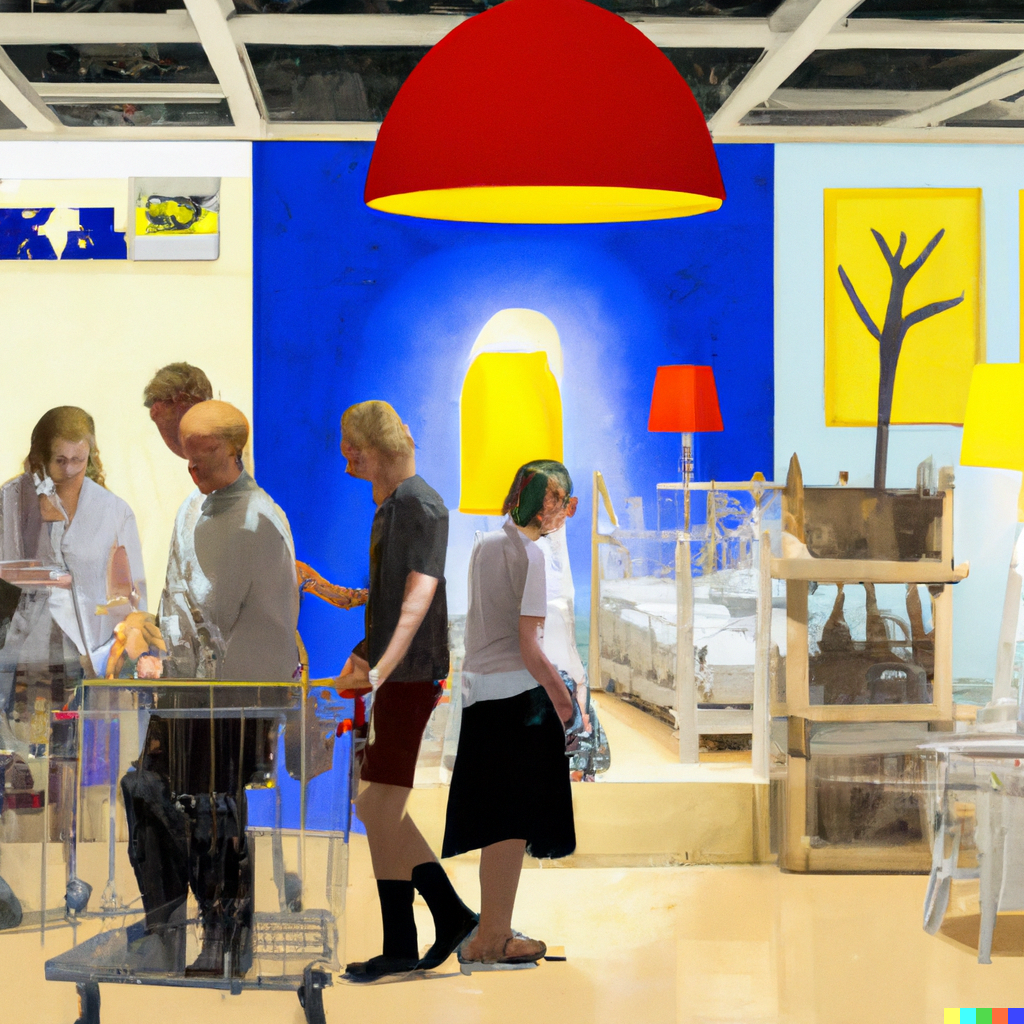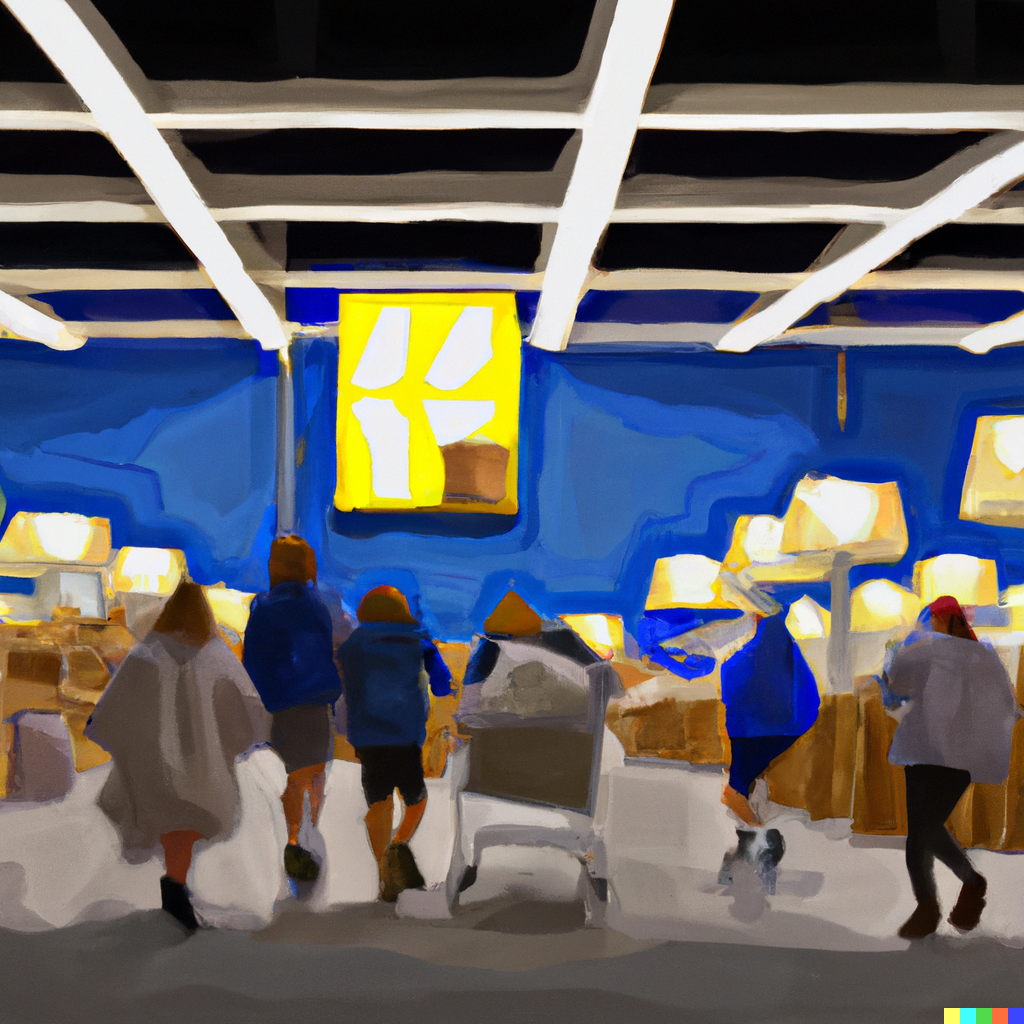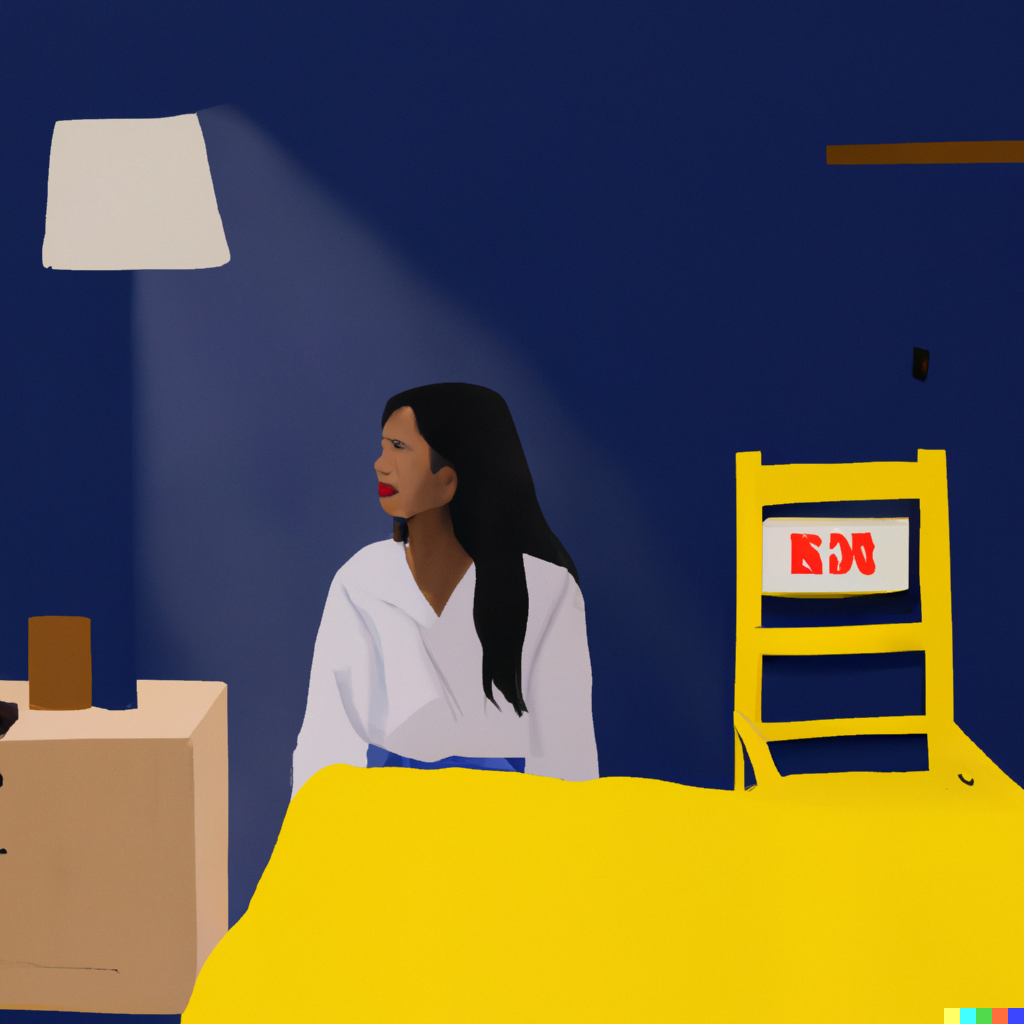Fauzia was a young and ambitious woman, a fierce force in the world of medicine. With bright brown eyes and long, dark hair styled in a sleek ponytail, she commanded attention wherever she went. She had just graduated from Imperial College London, one of the top medical schools in the country, and was eager to begin her career as a doctor.
Fauzia had always been ambitious, and she was determined to make a real difference in the world. She was considering specializing in pediatric medicine, with the goal of becoming one of the best pediatricians in the country. She knew that it would be a challenging road, but she was more than up for the task. With her intelligence, determination, and compassion, Fauzia was confident that she had what it took to make a real impact in the world of medicine.
Growing up, Fauzia had always been surrounded by IKEA furniture. Her parents had been fans of the practical and stylish pieces offered by the Swedish retailer, filling their home with them. Fauzia remembered how her father would spend hours assembling the furniture, with her and her brother helping out as they got older. It was a fun activity for the entire family.
So, when Fauzia finally set out on her own and rented her first apartment in London, it was only natural for her to turn to IKEA for her furnishing needs. She was excited to assemble the furniture on her own, and even considered inviting some of her friends over to make it a group activity. There was that sense of excitement and possibility. She was creating her own space, a place where she could fully be herself and achieve her dreams. And with the help of IKEA’s futuristic designs, she knew that anything was possible.
As Fauzia walked through the store, she couldn’t help but notice that all of the employees and customers seemed to be migrants, just like herself. She didn’t see a single English person in sight, which struck her as strange considering the diverse and multicultural nature of London.

Suddenly, Fauzia overheard a conversation between two shoppers in the beds and mattresses section of the store. They were a couple with strong Asian and African accents, and they seemed to be deep in discussion. As Fauzia listened more closely, she realized that they were talking about the fact that all of the English people seemed to inherit their furniture rather than buy it.
The couple was standing in front of a display of sleek, futuristic bed frames, their eyes scanning the various options. The man, who had jet black hair and piercing brown eyes, shook his head in disbelief.
“I can’t believe it,” he said, his accent thick and lilting. “I’ve never seen so few English folks in this store. It’s like they all inherit their furniture from their parents or grandparents.”
The woman, who had dark skin and curly hair, nodded in agreement. “I know, right?” she said, her accent equally strong. “But that’s just how it is here in England. The English folks get to inherit their furniture while the rest of us have to fork over our hard-earned cash to buy it ourselves.”
As Fauzia browsed the kitchen section of the store, the conversation she had overheard earlier played back in her mind, causing her to feel a sense of offense. She had always worked hard for everything she had, and didn’t appreciate the assumption that she was somehow less deserving or less wealthy than English people.

Fauzia couldn’t help but notice that there seemed to be a disproportionate number of migrants in the store, just like herself. She found herself comparing the customers in the store to her patients at the hospital, and couldn’t help but feel that there was a significant difference.
She couldn’t understand why there were so few English people in the store, and why the ones who were there seemed to be struggling or marginalized in some way. Despite being a part of the diverse and multicultural fabric of London, Fauzia couldn’t shake the feeling that she didn’t quite belong in this particular IKEA store.
As Fauzia approached the cash registers with her full trolley, ready to purchase a brand new bed, a sleek desk and a few shelves she had selected for her new apartment, she overheard a group of chavs, or young, working-class people, speaking in English. She lingered nearby, trying to listen in on their conversation, but suddenly something strange happened.

Without any warning, Fauzia was overcome with a sudden urge to abandon her shopping trip and leave the store without buying anything. She couldn’t explain the feeling, but she knew she had to listen to it. She quickly turned and made her way towards the exit, passing by the Hot Dogs stall on her way out.
Once outside, Fauzia pulled out her phone and dialed her father’s number. “Hi, do you have any spare furniture I could have for my new flat?” she asked him, her voice filled with desperation.
“Let’s see what I can do,” her father replied, his strong Indian accent evident over the phone.
Fauzia got into her car, her thoughts swirling with confusion and frustration. “I will never buy any furniture again!” she declared to herself.
This Short story was written using Open AI Chatbot. All images were generated using DALL.E 2 (Open AI)
